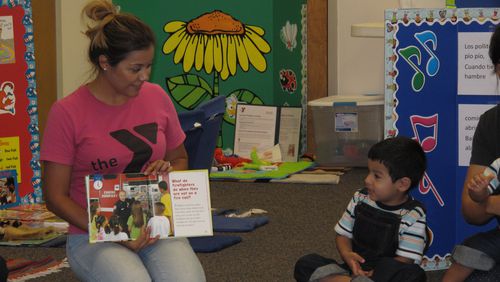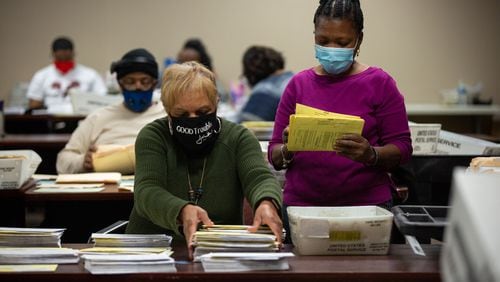Five years ago, the YMCA of Metro Atlanta launched an early learning program specifically aimed at Hispanic families. The rationale grew out of the work staffers had done as part of the Welcoming Hispanic Families initiative that was put in place 10 years ago.
“That original program was created as result of work we did around welcoming Hispanic families into early childhood education,” explained Julie Koriakin, the Y’s director of strategic initiatives. “We wanted to test some assumptions we had about why this community is often under-represented in early learning programs.”
Issues keeping young Hispanic children out of key early-learning classes were centered largely around accessibility, financial aid and transportation. In addition, Koriakin said the staff uncovered an important cultural concern.
“One of the primary reasons this group was under-represented had to do with the cultural choice and value of raising children in the home environment with a family member or neighbor as care giver,” she said. “As an organization, we had to a decision to make: Should we change cultural norms? No, that wouldn’t be successful, and we respect that value and tradition. But we could change our approach.”
Instead of expecting the community to get to the Y, the early learning program was designed to meet children and their care givers close to home. The Y partnered with local churches and community centers that eliminated the issue of transportation and accessibility. And by offering the program free of charge, it quickly generated interest.
“The pilot began with five sites in communities in Gwinnett, DeKalb and Fulton,” said Koriakin. “Everything including the staff comes in a van, and they set up the team learning centers with all the materials, toys and books to recreate an early-learning environment. The idea is to duplicate and simulate what these families would get in a traditional pre-K classroom, but it’s set up at the partner locations so they can access it.”
Two other key components that differ from a traditional pre-K is that the care givers are required to participate alongside the child, and all work is presented in both English and Spanish.
“The children receive the benefits, but it’s also about empowering the care givers,” said Koriakin. “We’re giving them what they need to help the child learn the skills necessary to have the best start possible when entering kindergarten. We have take-home activities they can do at home then bring back and show to the class. And some care givers have little knowledge of English, so it’s cool that the child and adult are learning together.”
Studies have shown that children who miss out on pre-K are often behind their peers by the time kindergarten rolls round. “We also know that many low-income, first- generation immigrants would never set foot in a formal early learning experience,” said Koriakin.
Since its inception, the program has shown that 80 percent of the participants improve their readiness for kindergarten, said Koriakin. “We evaluate on ages and stages to assess where they are in terms of academic knowledge and socio-emotional abilities from when they start at the end of the year. Consistently, we’ve seen gains of 30 points or more, and that’s just with two-hour sessions two days a week.”
The program currently works with 270 children from birth to age 5 and has waiting lists. But a recent $250,000 grant from the W.K. Kellogg Foundation will allow the program to expand significantly, adding more sites and as many as 100 more children.
“With demand we have right now, we could easily double the size of the program,” said Koriakin. “This grant will get us started.”
Information about the YMCA's Hispanic early learning program: ymcaatlanta.org






